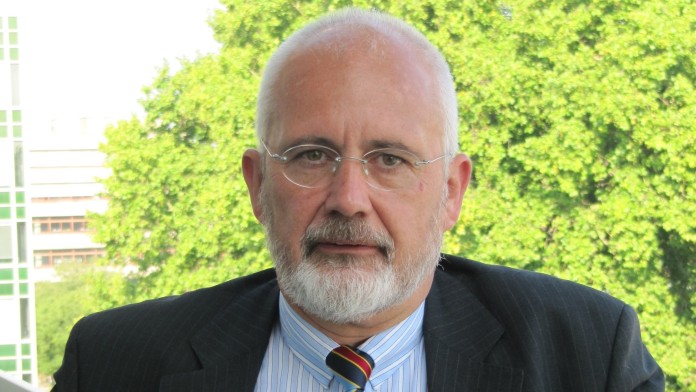News from 2020-10-28 / DEG
Spotlight on Hubertus Graf von Plettenberg, DEG’s Head of Corporate Management

The United Nations declared 24 October as World Development Information Day. Around the world, the day provides an opportunity to talk about international cooperation, global challenges and the way development agencies work. We spoke about it to Hubertus Graf von Plettenberg, DEG’s Head of Corporate Management.
DEG finances enterprises in developing and emerging countries. How is it possible to ensure – particularly given the current pandemic situation – that co-financed enterprises observe contractually agreed standards, for example in the environmental and social sphere?
For a number of years we have been actively engaged in establishing and disseminating international environmental, social and corporate governance standards in developing countries. This means conducting thorough environmental and social audits and closely monitoring the implementation of contractually agreed action plans by the companies we co-finance. At DEG, this is handled by a team of experienced experts supported by external specialists. Of course, in the current situation we face the particular challenge that travel to many partner countries is currently not possible. But there are solutions for this, too, such as collaboration with local experts.
Are there any investments that DEG will not co-finance on principle? And where can you get information about DEG-financed investments?
Definitely. There is a whole range of activities that we do not finance. These naturally include child and forced labour, products or business activities that are illegal under the laws or regulations of the country of investment or under international conventions or treaties, and racist and/or anti-democratic media. Nor do we invest in businesses where products such as tobacco, arms and ammunition or gambling form a substantial part of the financed activities, to name just a few examples. All activities and sectors avoided by DEG and other European Development Finance Institutions (EDFIs) as a matter of principle are set out in the EDFI-DEG Exclusion List, which can be viewed on our website.
As to your second question: we publish a great deal of information both online and offline, including an annual Development Report. Since 2015, the DEG website also incorporates a database where information can be found on virtually every new financing commitment, giving details of the investment and the co-financed enterprise. This concerns funds provided by DEG in the form of loans or equity participations, that is to say, not taxpayers’ money. I am especially pleased that over 90% of businesses contractually agree to this information being published.
And how does DEG measure the actual impact of its investments?
We use a method we developed in collaboration with impact measurement experts which is now used by several development finance institutions: the Development Effectiveness Rating (DERa). Quantitative and qualitative indicators to measure the developmental impact of each customer are collected annually and assessed across five categories: decent jobs, local income, market and sector development, environmental stewardship and community benefits. By regularly collecting data in this way, we can track development over the years, see which areas show promise and where further work needs to be done – then focus our efforts with customers on sustainability issues, for example. This is especially important in developing countries with the special challenges they face.

Share page
To share the content of this page with your network, click on one of the icons below.
Note on data protection: When you share content, your personal data is transferred to the selected network.
Data protection
Alternatively, you can also copy the short link: https://www.deginvest.de/s/endBZF67.CV6A
Copy link Link copied